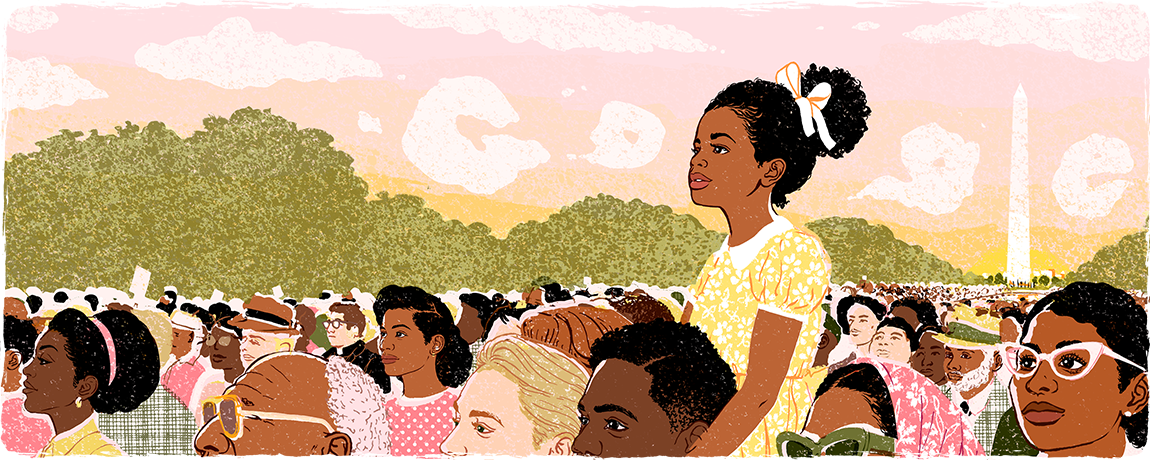
Google is celebrating the legacy of civil rights icon and Nobel Peace Prize laureate Martin Luther King Jr. with a special Doodle that takes inspiration from his historic “I Have a Dream” speech.
A Baptist minister, King is remembered as a leader of the Civil Rights Movement, “who dedicated his life working tirelessly for peace, social justice, and opportunity for all Americans — irrespective of color or creed,” Google writes. As a founder and the first president of the Southern Christian Leadership Conference, King led anti-segregation protests in Georgia and Alabama and became a symbol of nonviolent resistance, known as direct action. He also helped organized the 1963 March on Washington, which culminated in his famous “I Have a Dream” speech, delivered from the steps of the Lincoln Memorial. The same year, he was named TIME’s “Person of the Year.”
Martin Luther King Jr. Day is observed on the third Monday of January, and is traditionally celebrated with volunteering and community service. It was enshrined as a national holiday in 1983 by President Ronald Reagan, and was first celebrated as a federal holiday on Jan. 20, 1986. But it wasn’t recognized as a paid, independent holiday in all 50 states until 2000, when South Carolina became the last state to do so. This year, the holiday falls on Jan. 15, King’s birthday.
King doesn’t appear in Monday’s Doodle, which was drawn by guest artist Cannaday Chapman and developed in collaboration with the Black Googlers Network (BGN), a Google in-house employee network. Instead, the Doodle portrays a crowd — composed of all races and ethnicities — surrounding the Washington Monument Reflecting Pool, witnessing King’s “I Have a Dream” speech. Speaking with Google about the image, Chapman said he was inspired by the regular people who helped make up the Civil Rights Movement, and whose support ultimately led to the passage of landmark civil and voting rights legislation.
“It may appear that this movement or any civil rights movement was brought about by one person, but it’s the people that have the power to bring change,” Chapman said. “I would like people to remember that current events and our actions today will shape the future generations of tomorrow. What kind of example do we want to set for our children and our children’s children?”
More Must-Reads from TIME
- Donald Trump Is TIME's 2024 Person of the Year
- Why We Chose Trump as Person of the Year
- Is Intermittent Fasting Good or Bad for You?
- The 100 Must-Read Books of 2024
- The 20 Best Christmas TV Episodes
- Column: If Optimism Feels Ridiculous Now, Try Hope
- The Future of Climate Action Is Trade Policy
- Merle Bombardieri Is Helping People Make the Baby Decision
Write to Eli Meixler at eli.meixler@time.com